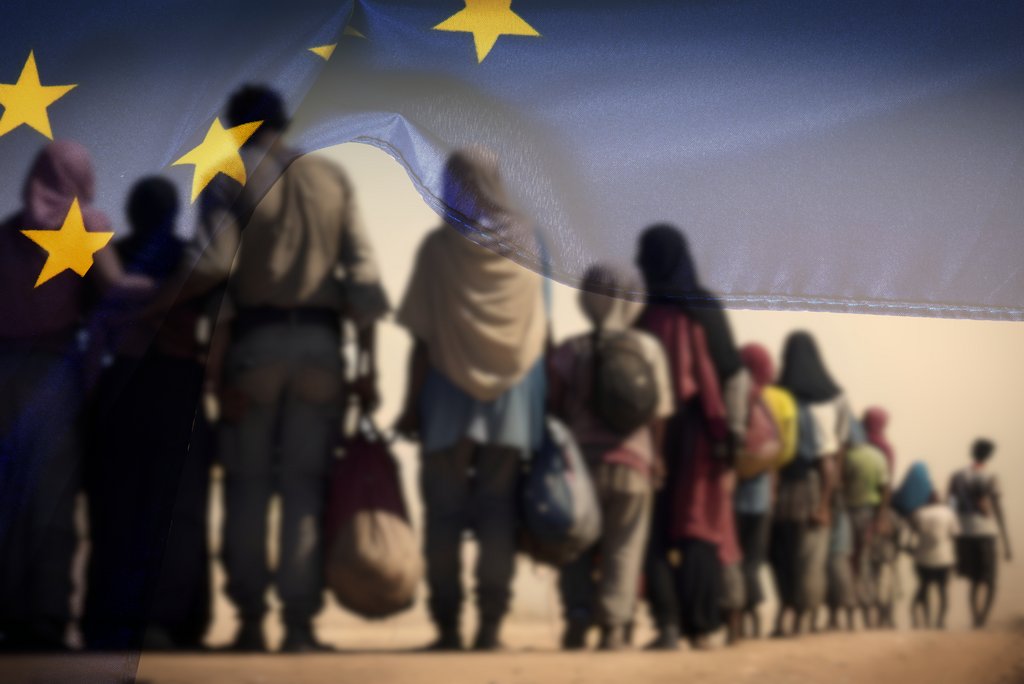Background - 18.10.2023 - 08:30
EU asylum deal: uncertain feasibility of repatriation agreements with third countries
The EU’s asylum reform envisages the establishment of large-scale initial reception centres for asylum seekers at the EU’s external borders. The ability to repatriate migrants who have been rejected there into third countries such as Tunisia, Egypt, Libya or Turkey is contingent on apposite agreements with these countries. In the interview, Middle East expert Dr. Andreas Böhm from the HSG’s Center for Philanthropy assesses the point of departure for such agreements.

Im Zuge der EU-Asylreform sollen an den EU-Aussengrenzen grosse Abklärungszentren für Asylbewerber:innen eingerichtet werden. Um von dort abgewiesene Migrant:innen teilweise wieder in Drittstaaten wie Tunesien, Ägypten, Libyen oder die Türkei zurückschaffen zu können, sind entsprechende Abkommen mit diesen Ländern nötig. Im Interview schätzt Nahostexperte Dr. Andreas Böhm vom Center für Philanthropie an der HSG die Ausgangslage für solche Abkommen ein.
The agreement that was already concluded with Tunisia in July was intended to curb illegal crossings to Europe. It is largely regarded as a failure. Why?
By now, Tunisia has overtaken Libya as the hub from which migrants from Africa set off for Europe, predominantly to Lampedusa. They come from Sudan, Somalia, Sierra Leone, Eritrea, Mali and many other countries. The agreement provided that Tunisia would receive about EUR 100m in order to reinforce the coast guard and thus prevent escape across the sea. It has factually failed because, on the one hand, the number of boat refugees has massively increased since then, while on the other hand, refugees are exposed to human rights violations in Tunisia, such as pogroms, which are at least tolerated by the public authorities. So we can’t ask them to accept repatriation to Tunisia, not from the previously mentioned asylum centres, either. The agreement has also failed because further financial aid is tied to conditions which the authoritarian president Kais Saied didn’t want to accept from the start.
How do you generally rate the feasibility of such agreements under the current circumstances?
Basically, there is a broad consensus both in the science and in practice that agreements are the most sensible way of controlling migration. In this context, you naturally have to consider the interests prevailing in the EU, on the one hand, and among potential partners, on the other hand. The EU is interested in the possibility of preventing illegal migration, while fostering regular migration into the labour markets. A core component is the repatriation of migrants who remain in the EU without a residence permit. In return, the EU or its member states offer a reasonable contingent of formal migration for trained, mostly young people who are looking for a perspective in Europe and also stand a chance of finding a job. A further component is development aid in order to make such a deal more attractive.
As mentioned before, such agreements with countries like Tunisia or Libya are problematical from the point of view of human rights. The principle of non-refoulement applies: refugees must not be moved to countries where they are threatened with persecution or even torture. In Libya, there is no state power with which negotiations are possible. Ultimately, the funds would go to local warlords.
In 2016, there was a deal with Turkey which obliged that country to take back migrants who wanted to enter the EU illegally via Turkey. Now this deal no longer seems to have any effect. Why?
That’s right – Turkey hasn’t taken back any refugees for some time. But originally, the agreement had actually worked since it was in the interests of both sides while also being in keeping with European and international law. In the course of the Arab Spring, President Erdogan positioned himself as a leading figure of a new order, together with Qatar and the Egyptian Muslim Brotherhood, whose member Mohammed Mursi was president for about a year until the military coup in summer 2013. Thus he styled himself as the patron saint of the Syrian refugees, whom he recognised as bothpotential followers in his own country and as well-trained (and usually informally employed) manpower to reinforce the economy.
And has this changed now?
Today, Syrian refugees are more of an encumbrance for Erdogan. After all, with more than four million, Turkey accommodates the absolutely highest number of refugees worldwide. The difficult economic and financial situation has given rise to a relatively critical, even hostile climate. The indigenous population feels disadvantaged. It has been severely hit by the inflation of the last few years. The situation is particularly precarious in the areas that experienced devastating earthquakes in spring. For this reason, Erdogan is no longer greatly interested in offering aid to refugees. Indeed, it would suit him perfectly well if they went to Europe or back to Syria again.
What would the EU have to offer Turkey for the deal to be renewed?
The starting point would surely be the admission of Syrian refugees to Europe, probably also major contingents of migrants from Turkey. Not only because of the bad economic situation but also because of Erdogan’s re-election, well-trained oppositional Turkish nationals want to move abroad. Erdogan won’t put any obstacles in their way. He is in need of investments in order to boost the economy. But he is known as a complicated negotiating partner – which is why he must be expected to make considerable further demands.
Now, many migrants from sub-Saharan countries also enter the EU through North African countries such as Tunisia. Couldn’t agreements be directly concluded with countries of that region?
This is precisely a point that academics have long been referencing. It is necessary to conclude agreements not only with the littoral states of the Mediterranean but also for instance with Nigeria. In such cases, too, the objective would be to establish contingents for students and well-trained people and, in return, implement the repatriation of rejected asylum seekers.
In addition, we will have to find out which countries might be prepared to receive refugees, at least transitionally. In the context of a UNHCR programme, they are evacuated from the Libyan camps and, with their consent, taken to Rwanda. If their asylum status is confirmed, they are flown to countries willing to take them in, such as Norway or Canada. Otherwise, they can stay in Rwanda. But this programme is too small to constitute more than a drop in the ocean. The plan of the British government under Boris Johnson to fly asylum seekers to Rwanda on a large scale during the procedure has been suspended for the time being owing to legal objections.
This state of affairs looks pretty desperate.
As a matter of fact, the measures discussed merely cure the symptoms. The causes of migration – state disintegration, corruption and mismanagement, climate change, suppression, demography, etc. – aren’t affected by them. So long as people are unable to see any perspectives in their countries of origin, they will escape, even if that means putting themselves in mortal danger.
Why is migration policy such a hot potato in Europe?
It’s the loudest voices that shape public discourse. On the one hand, there are the human rights organisers, who emphasise Europe’s humanitarian obligations; on the other hand, there are the right-wing nationalists, who promote isolation. Both play the card of emotions and affects. Conversely, politics must find solutions which can be implemented as effectively as possible, which will follow national interests and satisfy legal and ethical standards. And if this is not sufficiently exacting, solutions to problems should also be viable in the long term and not create any subsequent problems. Pragmatic approaches thus find themselves between a rock and a hard place again – nobody is really satisfied. And indeed, the agreements that have been outlined also offer enough weak points for criticism from various perspectives.
Image: Adobe Stock / studio v-zwoelf
More articles from the same category
This could also be of interest to you
Discover our special topics



![[Translate to English:] Choix Goncourt de la Suisse | unisg.ch](https://www.unisg.ch/fileadmin/_processed_/b/a/csm_Choix_Concourt_de_la_Suisse_HT-Stibi-069_2110740678.jpg)












